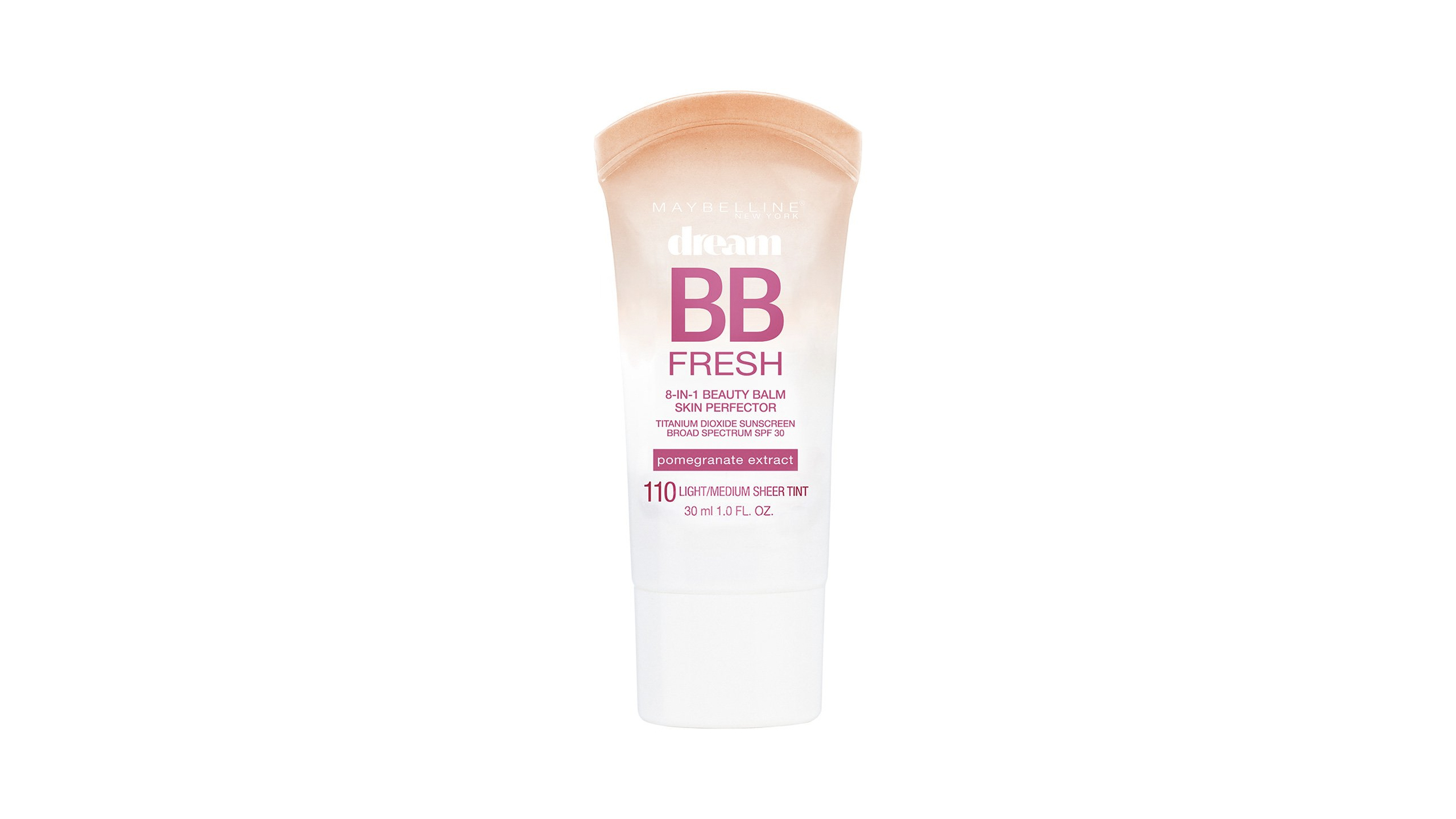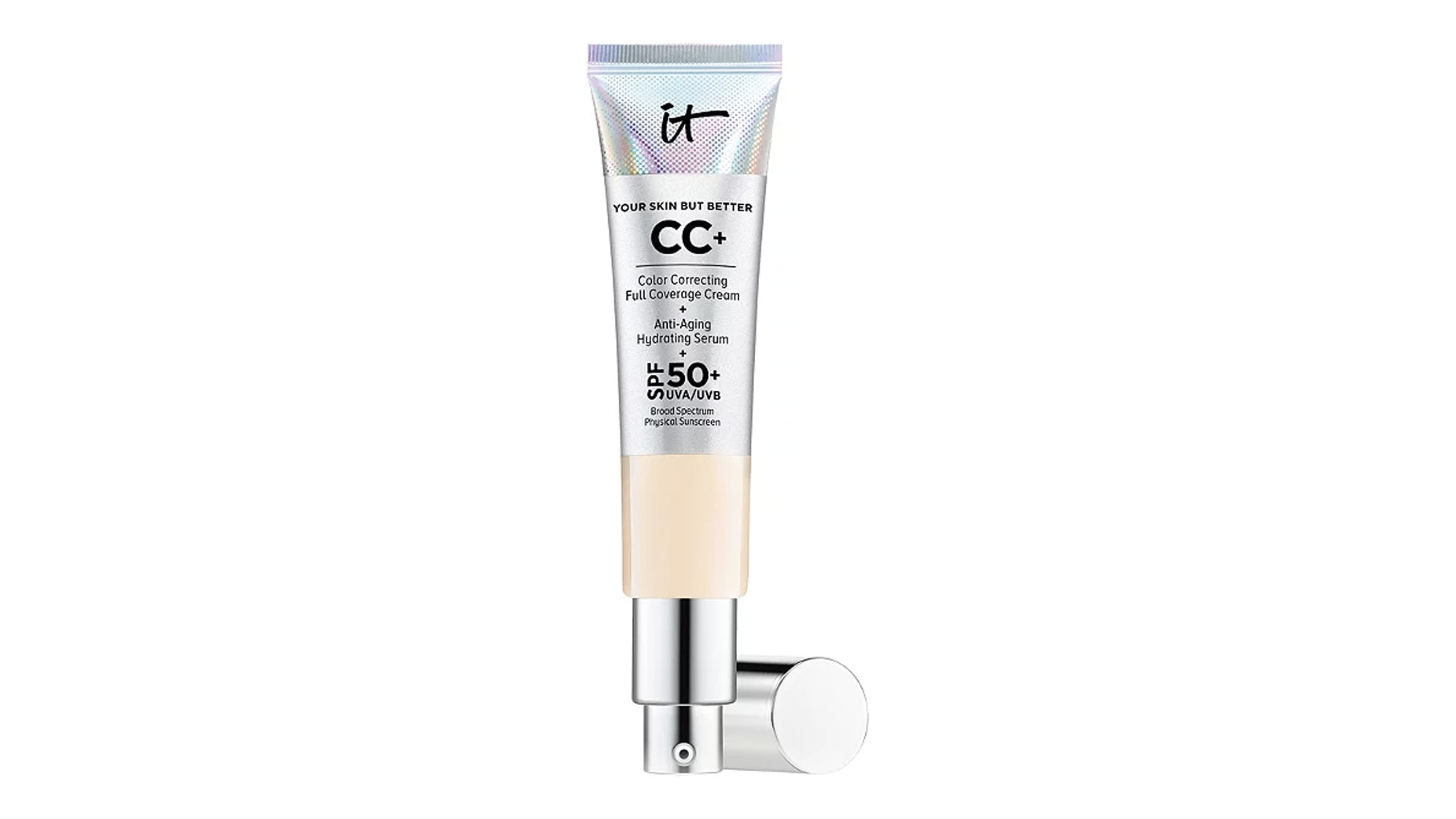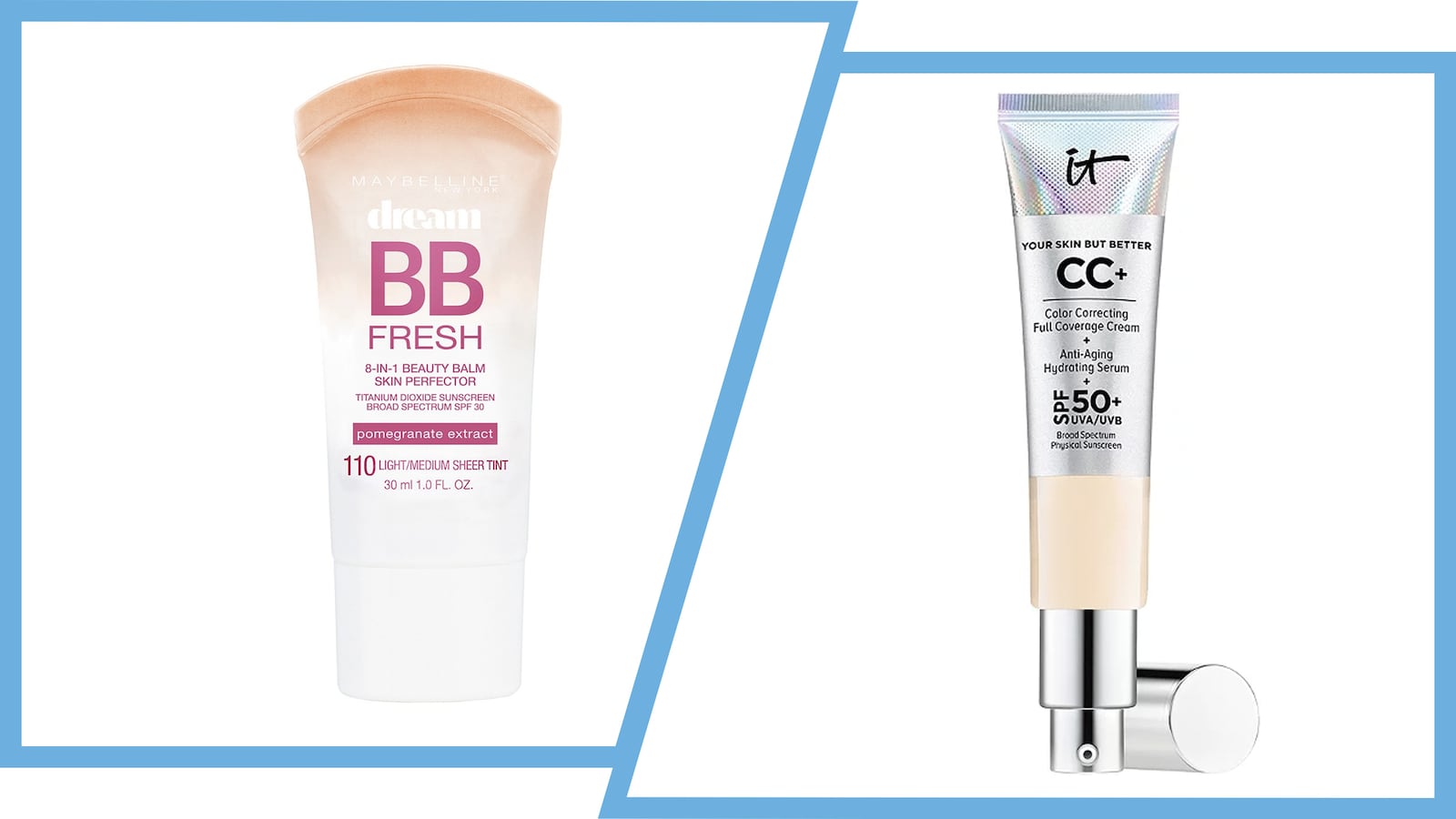Whether you’re a skincare buff or novice, we’ve all at one point or another had to start our routine from scratch because we used the wrong product—and that especially rings true when our makeup bags and medicine cabinets are filled to the brim with potions and products that look, smell, and sound alike, like a BB cream and a CC cream.
“Although CC creams and BB creams can be commonly confused, you have to try different brands since there is a great variation in texture and opacity,” says Dr. Michele Green, M.D., board-certified dermatologist and RealSelf contributor. To optimize your routine—and quality of your skin—take a look at how they differ.
What Is a BB Cream, Exactly?
-BB cream is short for blemish balm, which works as a mix between a moisturizer and a blemish corrector or foundation to blur discoloration in a natural, understated way, according to Dr. Gretchen Frieling, M.D., board-certified dermatopathologist at GFaceMD. It’s usually infused with antioxidants, acids like hyaluronic acid, and SPF so it doubles as a light form of coverage or foundation with extra sunblock protection built-in. This makes it a particularly great choice for day time use (UV rays are still powerful during the fall and winter months, so BB cream is helpful year-round).
BB creams pack so many beneficial ingredients into one product (think acids, glycerin, a tint to color correct blemishes, SPF, vitamins, and extracts), so they can be a bit thicker than other products like tinted moisturizers, or even some lightweight foundations, according to Dr. Freiling.
How Do You Use a BB Cream?
Dr. Green says you’re best off applying SPF 50 as a first layer, with SPF-infused BB cream on top. This way you’re guaranteed enough protection. “I wear my sunscreen every day before applying makeup and have seen a reduction of fine lines and wrinkles on my face that were produced by the sun. It also prevents new sunspots and wrinkles from forming,” she says.
Dr. Freiling adds that some experts prefer to use BB cream as you would a primer—applied before foundation or tinted moisturizer—since some creams might already contain silicone-based ingredients that act as a primer. But not all skincare experts agree, says Dr. Freiling. “I tend to side with the former because not all BB creams are the same. You can clean your face, and perform your regular hygienic routine, apply your primer, and follow up with the BB cream,” she says.
Who Shouldn't Use BB Creams?
If you have acne-prone or sensitive skin, Dr. Green says to be cautious when using new products like BB cream. Although a BB cream is a form of a lighter coverage foundation, which sounds pretty innocuous, “typically putting any sort of unknown product on one’s face can result in the clogging of pores, which may result in the worsening of acne or other skin conditions,” says Dr. Green. Since BB cream also contains moisturizer, she notes it’s especially important to look for the right type of moisturizing ingredients, specifically those that are non-comedogenic (or non-pore-clogging).
OUR PICK:

“Though high-end makeup products seem to be typically praised more, I have found that one specific BB cream has worked wonders for me—Maybelline Dream Fresh BB Cream,” says Dr. Freiling. “The light, creamy texture of the product is perfect for almost all skin types and can be flawlessly applied to the skin.”
What Is a CC Cream, Exactly?
CC Cream is a color corrector, which quite literally “corrects” redness or dark spots on your face, according to Dr. Green. It’s typically made of water, cycopentasiloxane, titanium dioxide, dimethicone, butylene glycol, and other ingredients depending on the brand. While it doesn’t directly treat acne, it can be incredibly moisturizing, which in and of itself can prevent your skin from producing extra oil to compensate for dryness. Yes, people with oily skin still need to moisturize.
CC creams usually have more of a light, fluffy texture and are less opaque than BB cream, notes Dr. Green, but it varies by brand and ingredients.
How to Use a CC Cream?
Dr. Green says to apply your CC cream after your SPF, once your skin is prepped and primed for makeup application. Since CC creams acts as a foundation for other makeup, apply it before powder, as powder is a great way to set liquid makeup, she notes.
Not to get even more confusing, but take a hard look at the texture and consistency of your CC cream before you plan out the order of your routine. “The general rule of thumb is to apply your products from thinnest to thickest consistency,” says Dr. Joel Schlessinger, M.D., board-certified dermatologic Surgeon and RealSelf contributor. “If you have a regular moisturizer and sunscreen you enjoy, apply CC cream after you apply those products. If you use your CC cream as a moisturizer, you can apply your CC cream, followed by your SPF.”
Who Shouldn’t Use a CC Cream?
Similar to BB cream, pay close attention to the ingredients before applying, especially if you have sensitive or acne-prone skin. “It’s really dependent upon the formula. Unfortunately, the line between CC and BB cream is very thin, and any company can put those labels on their packaging,” says Dr. Schlessinger. Look instead for specific ingredients that are compatible with your unique skin type. And if you’re unsure, ask your dermatologist, or do a spot test on your hand before committing to a full-face application.
Additionally, if you’re looking to treat skin issues at the source, you’re better off using “more advanced products like serums and retinols,” says Dr. Schlessinger, since CC cream is more of a cosmetic product that conceals discoloration and imperfections. (For a serum, Rodan + Fields Intensive Renewing Serum with RetinAl delivers a smooth canvas finish unlike no other).
OUR PICK:

“It gives my skin an airbrushed effect that I know is desired by many. It also has not dried my skin out, or given me any complications like pimples or blackheads,” says Dr. Green
Scouted selects products independently and prices reflect what was available at the time of publish. Sign up for our newsletter for even more recommendations. Don’t forget to check out our coupon site to find deals from Sephora, CVS, and more. If you buy something from our posts, we may earn a small commission.






